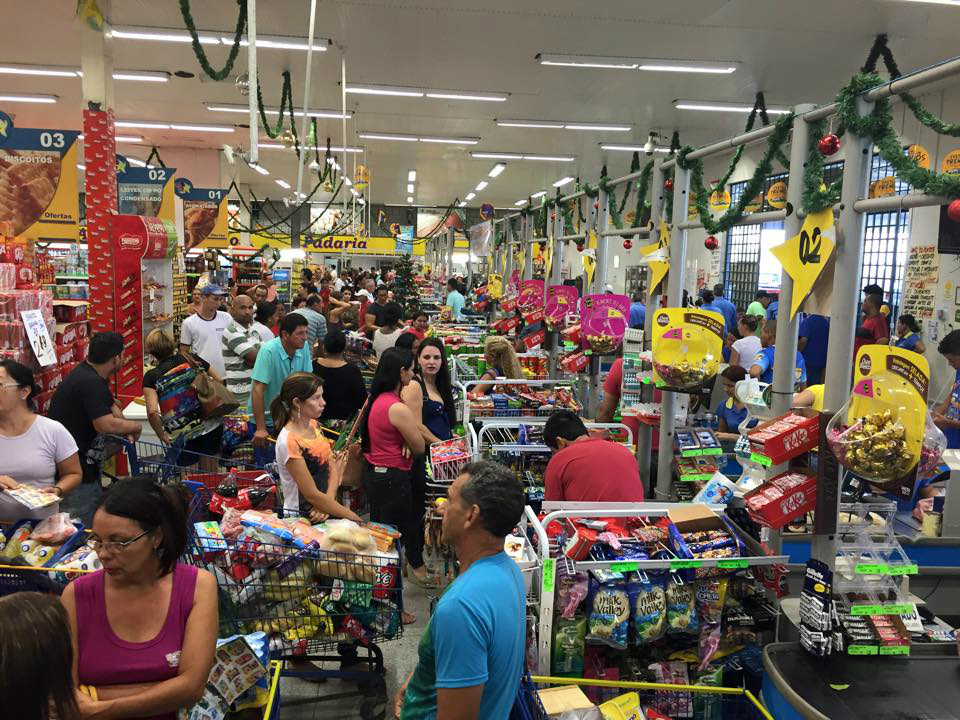RIO DE JANEIRO, BRAZIL – Christmas in 2019 was stronger for retail than 2018, but poorer than 2017, according to Isabella Nunes, manager of the Monthly Trade Survey at the Brazilian Institute of Geography and Statistics (IBGE). “In 2018, Black Friday anticipated purchases, which got in the way of Christmas. This year it was more widely distributed…”, said Isabella Nunes.

The volume sold at retail grew 2.6 percent in December 2019 compared to the same month the year before. In December 2018, the increase was 0.7 percent. In the same period in 2017, sales grew 4.0 percent.
Five of the eight activities of the Brazilian retail trade saw an increase in sales in December 2019 compared to December 2018. The IBGE points out that December 2019 had one business day more than the same month in the previous year.
The growth occurred in ‘Other’ items for personal and household use (12.9 percent), Furniture and home appliances (18.6 percent), Pharmaceutical, medical, orthopedic, perfume and cosmetics (7.1 percent), Office equipment and supplies, information technology and communication (1.4 percent) and Books, newspapers, magazines, and stationery (1.5 percent).
The most intense negative influence was recorded on hypermarkets, supermarkets, foodstuffs, beverages, and tobacco (-2.9 percent). There were also drops in Fuels and lubricants (-1.0 percent) and Fabrics, clothing, and footwear (-0.1 percent).
Considering the expanded retail trade, which includes vehicles and construction material activities, the sales volume rose 4.1 percent in December 2019 compared to December 2018. Vehicles, motorcycles, parts, and components grew 9.3 percent, while construction material increased 5.1 percent.
Supermarkets
The meat price shock contributed to the poor sales performance of supermarkets last December, according to Isabella Nunes, manager of IBGE’s Monthly Trade Survey. The volume sold by the sector fell 1.2 percent compared to November. Compared to December 2018, there was a 2.9 percent drop.

“The drop in supermarkets impacted the overall result (of retail), but it was one-off since it was offset by a very high IPCA (National Broad Consumer Price Index), because of meat,” Nunes said.
Supermarkets’ nominal revenues grew 0.3 percent in December compared to November, but the result is offset by food inflation as measured by the Broad Consumer Price Index (IPCA), thus reaching the result of the volume sold.
“It is an activity that has a very strong replacement effect,” Isabella said. “There was an impact of prices in supermarkets. Families did not buy less, they replaced it with other items (at lower prices)”, she explained.
In addition to food inflation, the supermarket sector has been affected by a stable worker’s income, added the IBGE researcher.
The volume sold was fluctuating close to stability between September and November. The labor market rebound, which is still closely linked to informality, does not increase the worker’s average income or consumption capacity, said Isabella Nunes. “The casual worker has a lower income than the formal one,” she explained.
With the loss of momentum over the past four months, the supermarket sector has not helped the global retail average as much in 2019. The sector’s sales grew 0.4 percent last year, after more consistent growth in 2017 (1.5 percent) and 2018 (3.8 percent).
Source: Estadão Conteúdo

